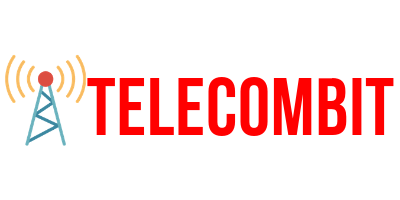How Do Job Boards Make Money?


Before the age of the internet, job offers used to be posted in newspapers, on physical job boards in post offices, and on bulletin boards in all kinds of establishments, from pubs to hotels. However, with the advent of technology and the internet, we do almost everything online. There are job boards catering to each and every niche that you can imagine out there. While monetizing a website isn’t necessarily a hard nut to crack, the difficulty of making sustainable revenue from your website depends on many factors including your niche, target geography, popularity and organic traffic among many others.
What is a Job Board?
Simply put, a job board is a website where job seekers can post their résumés and companies looking for employees can post job offers. In a way, a job board website is very similar to a peer-to-peer marketplace a website where people buy and sell products and services. Note that unlike some informational websites such as blogs, job boards have a great potential to turn into a huge money making asset for its owners if they leverage the right monetization models.

It is also imperative to establish your job board from scratch with a solid revenue model in mind as it helps a lot in building a worthy website. As a job board website, the customers you serve would be employers and job seekers. Most of the revenue opportunities revolve around these two groups of target customers.
Smart Ways Job Boards Make Money
Unlike many other websites such as blogs or informational resources, job boards are designed to make money for their owners. So here are the basic ways job boards make money.
The many jobs available in agricultural chemicals can vary but typically includes positions in research and development, production, quality control, sales, marketing, and regulatory affairs.
1. Job Posting
Job posting fees are undoubtedly the most common way a job board makes money. According to research, over 60 percent of job boards depend on job postings as their only source of revenue. Employers pay to have a job listed for a certain period, often 30 days.

The amount you can reasonably charge for a listing varies widely depending on the niche you targeted. You can also provide an additional upsell by having options for both standard job posts, as well as featured listings, distributing jobs to multiple aggregators such as Indeed or ZipRecruiter, or posting the position on social networks.Another option is to offer job slots as a recurring subscription. This model is already used by large sites such as ZipRecruiter and Monster and helps to provide greater stability and profitability as customers are charged automatically.
2. Charging Employers

Note that charging employers is the most common and straightforward method job boards generate revenue. After all, these businesses wouldn’t be looking to invest in a new hire if there weren’t some important objective that needs to be fulfilled. So they’re likely also willing to invest in having qualified applicants so that position can be filled as quickly as possible.
3. Featured Employer Profiles

Another means job boards make money is by offering featured employer profiles on their homepage, in email newsletters, or on their blog. Note that you can choose to charge employers for other features that can help their company page stand out from the crowd, such as allowing them to add a video or a company logo. Often the best way to package this is to combine your featured profile offering with the premium job posting offer.
4. Resume Access
Another way job boards generate revenue is through paid access to job seeker profiles. Although it depends on the industry you operate in, you may be able to charge a monthly fee to employers in exchange for access to you.

Note that this strategy should only be used by established job boards, as you’ll need to have several thousand resumes available before you offer sufficient value to charge for this. However, once you’ve collected enough users, resume access typically brings in several hundred dollars per month. It can also be a good idea to offer mixed packages with both job posting and resume access privileges.
5. Hosting Ads

Coupled with job postings, there are a multitude of other monetization options available for job boards. Several of these take the form of advertisements you can host on your site.
6. Google Ad Sense

Google Ad Sense is another way job boards generate good fund, if not the most profitable. They just need to create an account and place the code on their site to start hosting ads. Their earnings are heavily dependent on the volume of traffic on their site, and the number of people who click on the ads. Also, while many sites utilize this revenue model, you should bear in mind that placing too many ads on your site will damage your brand and the aesthetics of your site.
Final Words
Your major source of revenue as a job board owner will be job postings. However, there are many other sources of monetization you can leverage both to grow your bottom line and diversify your revenue streams. While charging job seekers is far less common than charging employers, it can certainly be a viable source of revenue, especially in highly competitive markets. It is advisable you carefully evaluate the niches you serve and think of some ways you might implement job seeker oriented offerings.





